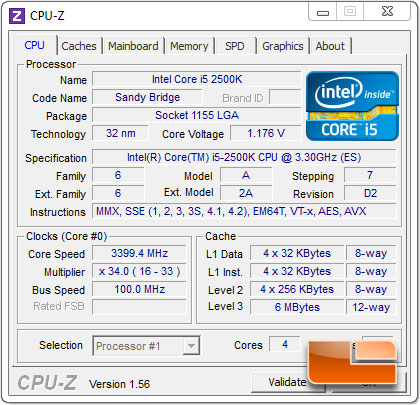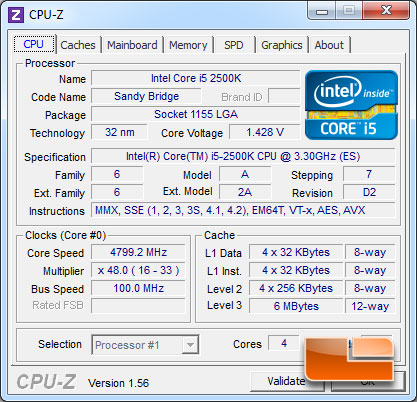ECS P67H2-A Black Extreme Motherboard Performance Review
Overclocking the ECS P67H2-A Black Extreme Motherboard
Overclocking greatly varies due to what hardware is being used and who is doing the overclocking. Always remember that no two pieces of hardware will perform the same, so our results will differ from what you might be able to get.
Overclocking with the new Sandy Bridge processors has been simplified, at least in part. Adjustments to the Bclck have been almost done away with and overclocking is almost completely done through increasing the multiplier. When overclocking we used to run out of room on the Bclck or cooling. Now we are going to be limited by the Multi-wall. The Sandy Bridge processor just isn’t capable of going any faster; it’s all dependent on the piece of silicone that you get when you purchase your processor.

The Intel Core i5 2500K utilizes a bus speed of 100MHz, though the MSI P67A-GD65 is picking it up at 99.8MHz. Under full load the Intel Core i5 2500K uses a multiplier of x33 to achieve the final clock speed of 3.3GHz. Since we are using a K series processor we will be able to increase the x33 multiplier until we hit the multi-wall.

Despite my grievances with the BIOS on the ECS P67H2-A Extreme Black it was fairly easy to accomplish a rock solid overclock. Prior to the Internal PLL Voltage option that we have seen with newer BIOS revisions on the ASUS and MSI boards that we have tested, we were able to hit a maximum multiplier of x48. That is also the case with the ECS P67H2-A Extreme Black. Adding an extra 190mv to the vCore we were able to hit 4.8GHz on the ECS P67H2-A Extreme Black. Unfortunately though, any increase to the bclk caused the infamous BSOD. That fact was a little on the disappointing side, though a gain of 1.5GHz overall is nothing to shake a stick at!

Comments are closed.